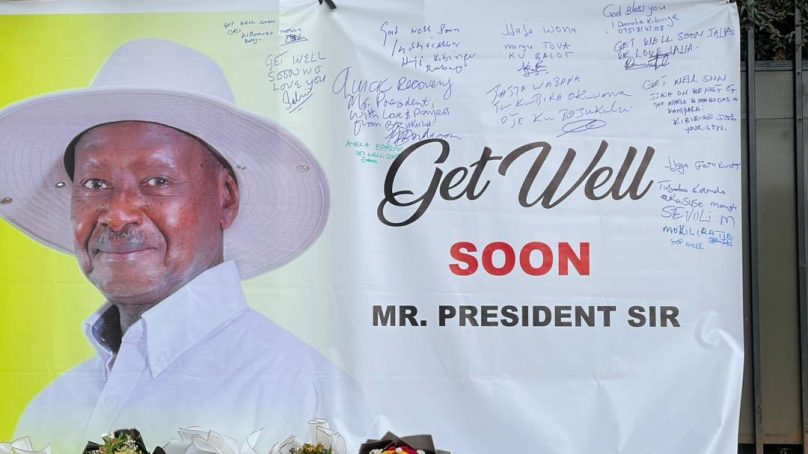
It is true. During his more than 37 years, President Tibuhaburwa Museveni has never told Ugandans that he is sick. The fact that he publicly announced that he was sick and threatened by Covid 19 revealed that the president is a human being that may be attacked by microbes like the rest of us; that he is not immortal; and that we should as a country begin contemplating a future without him.
A future without the President is drawing nearer and nearer. Unfortunately, the overwhelming evidence is that the country, ourselves, are not ready for it, because we have not been prepared for it. We have been prepared to live off dependency and handouts. We have been prepared to depend on the president as the beginning and end of everything that makes life liveable in Uganda.
What I see is that ordinary country-folks, including some elite, that have chosen to be ordinary, have not imagined yet a Uganda without President Tibuhaburwa Museveni. Their political future and whole lives seem to revolve around the president. They see nothing good beyond president Museveni.
It can be catastrophic to place one’s future on the fortunes of an individual leader or ruler. We saw what happened to some Ugandans when Milton Obote and Idi Amin were no more. They have never recovered. They have never looked forward. They are stagnant. They are vulnerable.
None other than President Museveni’s own family captures this imminent vulnerability and mounting panic. The president’s family lives and acts as if Uganda has no laws and constitution. Or they are superior beings that are not subject to the rigours of law and constitution. A Twitter post by Museveni’s daughter Natasha Museveni Karugire illustrates the underlying fear and dawning realty:
“Thank you all citizens for your true love and best wishes towards our president’s health condition. He’s getting well.”
This is an unexpressed sigh of relief by the first family, not a genuine appreciation of the concerns of ordinary citizens.
Presidents Obote and Amin never stayed so long in power but President Tibuhaburwa Museveni has done. Those who do not see a future without President Tibuhaburwa Museveni are likely to be affected immensely; far more than those who never imagined a future without Obote or Amin.
Collectively, Uganda is endangered by a possible absence of the president from the politico-military stage, over which he has had a firm grip for decades. It is worrying many Ugandans are mired in worship attachment to the President. They need liberation, but who will liberate them?
It is understandable many cross-border refugees who have had an opportunity to be politically active in the country, or else accessed jobs that would otherwise belong to Ugandans, and now enjoy our resources, nationality and citizenship, or even dual citizenship, would feel insecure and uncertain about the future. Others have accessed traditional, ancestral lands of indigenous Ugandans, something that can only happen under the governance and leadership of President Tibuhaburwa Museveni.
Some of them have become wealthy amidst the mushrooming poverty of diverse communities of Ugandans. Their children are assured of education, unlike those of Ugandans. All these are uncertain about a future without President Tibuhaburwa Museveni. They cannot imagine a Uganda without the president. When the President talks of peace and security they have far more of these than Ugandans – sometimes, if not always.
We must pray for President Tibuhaburwa Museveni’s continued well-being because peace, security and tranquillity beyond him can be just a dream for many. The president does not seem to have imagined a Uganda beyond him, but one may say he has, because in 1997 he told the then The Monitor newspaper, which became Daily Monitor, that Uganda after him will be ungovernable. Those who are old enough and used to read The Monitor, will not forget this statement of the president and must seriously imagine a Uganda beyond the president.
One time in 1997, as the newly unanimously elected Secretary General of Makerere University Academic Staff Association (MUASA), I told the same newspaper that if we did not change our political trajectory our country would be in a worse situation than that of Somalia. I said so because Somalia has only four clans but have been slaughtering each other for close four decades. In Uganda we have numerous clans, numerous indigenous groups, numerous refugees and at least four ethnicities.
If the centre broke loose, mayhem would reign for year. We have been there before and no one wishes a revisit of the bloodbath that was once synonymous with a country that was once celebrated as the Pearl of Africa because its beauty and wealth.
Yes, we must begin individually and as a country to imagine a future without President Museveni. Our stability is unstable stability. There can be no stable stability without meaningful democratisation. We have more de-democratisation than democratisation.
For God and my country – Uganda!
- A Tell report / By Prof Oweyegha-Afunaduula, a former professor in the Department of Environmental Science of the Makerere University, Uganda











